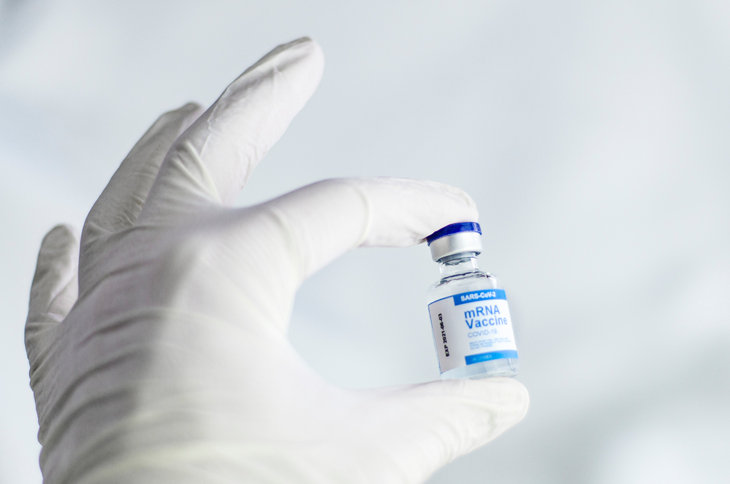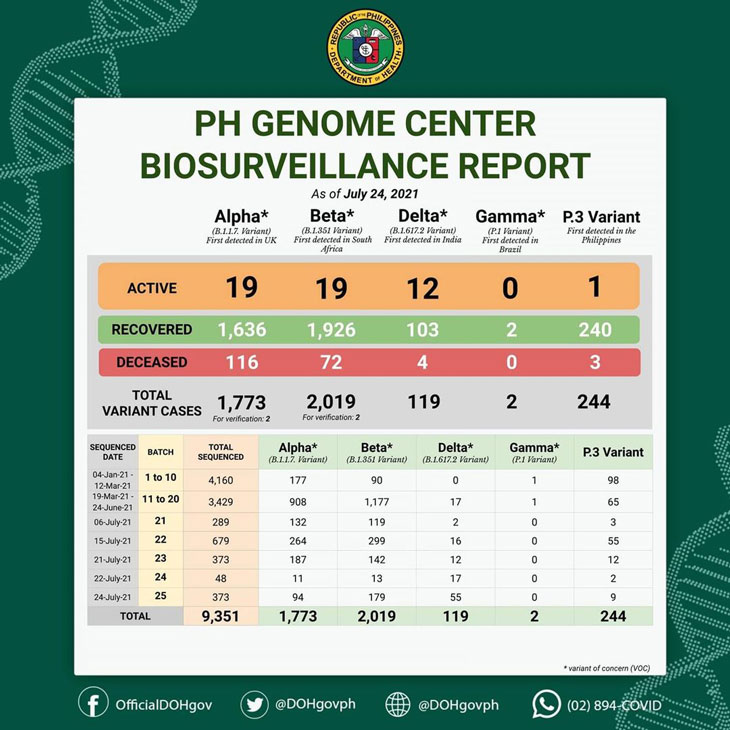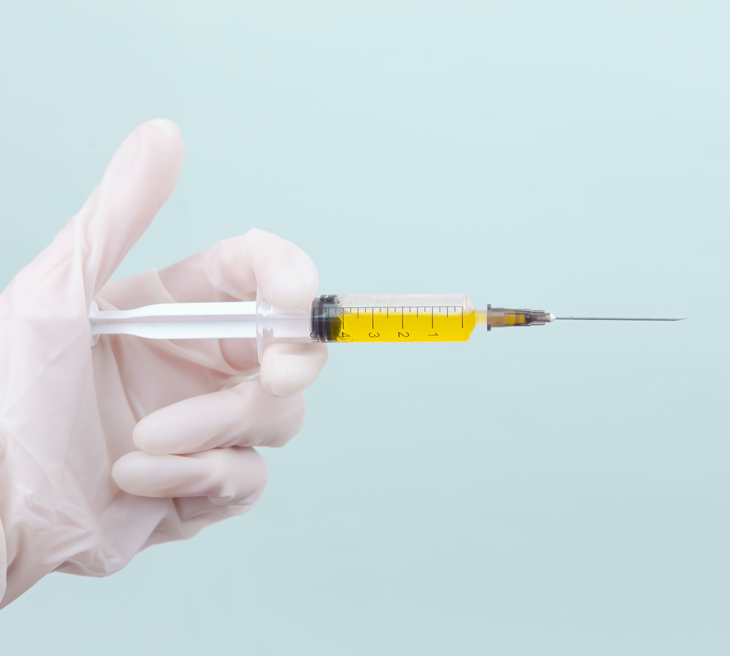One vaccine brand has been deemed most effective in both the original strain and emerging variants.
In yet another bad episode in what would soon be a two-year battle with the coronavirus disease-2019 pandemic, a total of 119 Delta variant cases (COVID-19) have been recorded as of July 25, according to a report by the Philippine News Agency.
A highly-transmissible variant, this latest figure comes just 11 days after the Department of Health (DOH) first confirmed that Delta has already infected 16 individuals in the country, 11 of which are local transmissions.

This makes dealing with the virus even more daunting, despite a prolonged lockdown, a curfew, strictly implemented health protocols like social distancing as well as wearing of face masks and face shields, and over six million Filipinos inoculated.
The vaccination efforts have been especially important, as this provides a layer of protection against the deadly virus.
But with rising variant cases, just how effective are the vaccines the country currently administers? And as recent studies have indicated, can booster shots be of any help against emerging COVID-19 strains?
Threatening variants
The World Health Organization (WHO) has classified emerging COVID-19 variants into two categories, Variant of Concern (VOC) or Variant of Interest (VOI). VOCs include the Alpha, Beta, Gamma and Delta variants, while VOIs are the Eta, Iota, Kappa and Lambda variants.
VOCs, as the name suggests, are variants that spread rapidly. Alpha, for instance, is 50 percent more contagious than the original coronavirus first identified in China in late 2019. Delta is even more contagious by about 50 percent compared to Alpha.

“In a completely unmitigated environment—where no one is vaccinated or wearing masks—it’s estimated that the average person infected with the original coronavirus strain will infect 2.5 other people,” says Dr. Perry Wilson, an epidemiologist at Yale Medicine. “In the same environment, Delta would spread from one person to maybe 3.5 or 4 other people.”
The Delta variant, first discovered in India, is the culprit behind the seemingly merciless surges in the country as well as the UK and the US. Indonesia has also been recording 50,000 cases a day due to Delta, making it the new epicenter of the worldwide pandemic.
In the Philippines, concerns over variants are also growing. Apart from the 119 recorded Delta cases—103 of which have recovered, 12 are recuperating, and four have died—new cases of other variants have also been detected.
About 94 Filipinos have been infected by the Alpha variant, 179 others by the Beta variant, and nine by the Theta variant, which was discovered within the country. This is based on the latest whole-genome sequencing report by the University of the Philippines-Philippine Genome Center (UP-PGC), and the University of the Philippines-National Institutes of Health (UP-NIH).
Efficacy of vaccines
Among the vaccines that have been administered in the country, Pfizer-BioNTech remains to be most effective not just against the original COVID-19 strain, but also against the Delta variant.
A Financial Times explainer states that its efficacy is at 88 percent against symptomatic disease and 96 percent effective against hospitalization.
The AstraZeneca vaccine, meanwhile, is 60 percent effective against symptomatic disease and 93 percent against hospitalization.
while Oxford-AstraZeneca (which is not an mRNA vaccine) was 60 percent effective against symptomatic disease and 92 percent effective against hospitalization.
A Deseret report states that the Moderna vaccine, according to a lab study, could protect against Delta, but not as much as it does against Alpha. It can also protect better against Delta compared to Beta variants.
A yet-to-be-peer-reviewed study from Canada, meanwhile, suggests that the Moderna vaccine is 72 percent effective against the Delta variant after just one dose. Whether the efficacy is better after the second dose has not been determined, as there was not enough data.
Booster shot needed?
A recent study, though not yet peer-reviewed, suggests that the Johnson & Johnson COVID-19 vaccine might not be as effective against the delta and lambda variants compared to the original strain.
It remains unclear if Sinovac, the Chinese manufactured vaccine which makes up the majority of the country’s supply at 17 million doses, is effective against Delta.
China has so far not provided vaccine effectiveness results against the variant based on large-scale data in clinical trials or real-world use, nor offered detailed information from lab tests. This has made any meaningful peer review by foreign experts impossible, according to a Reuters report.
Chinese epidemiologist Zhong Nanshan, however, have said that Sinovac vaccines “are somewhat effective in reducing the risk of symptomatic and severe cases” and it is “based on analysis of infections in Guangzhou city, and Zhong told Reuters the results are preliminary and the sample size is small.”
Sinovac spokesman Liu Peicheng adds that preliminary results based on blood samples from those vaccinated with its shot has shown a three-fold reduction in neutralizing effect against the Delta.

For both vaccine brands, however, experts are suggesting booster shots to bolster protection against COVID-19.
A Bloomberg report via Fortune mentions Mongolia and the U.A.E., which has inoculated its population with Sinovac and Sinopharm, has seen a surge in cases.
But even Pfizer Inc. CEO Albert Boula, as early as April this year, has said that a booster dose “will likely be necessary to maintain the highest levels of protection” against COVID-19.
Initial data from its booster study demonstrates higher antibody response by tenfold.

At the moment, the Department of Health (DOH) is not administering booster shots.
“There is currently no evidence on the need for a booster dose/s of the vaccine after the current two-dose vaccine series is complete,” the department writes in its website. “The need for and timing of booster doses will be evaluated as further data accumulate.”
With more concrete evidence showing its safety and efficacy, however, the department says it is open to giving booster shots to immunocompromised Filipinos.
As more studies need to be conducted, the best vaccine for now is the one that’s available.
Dr. Anne Gabriel-Chan, a Filipino doctor, recently went viral for her post showing the effect of COVID-19 vaccines.
Through a series of chest x-ray examinations, she has shown a comparison of results among COVID-19 patients vaccinated with Pfizer, AstraZeneca, and Sinovac.
“No vaccine is superior to the other,” she says. “All of them have served their purpose—prevent severe infection, so whichever will be available on vaccination day, please get protected before another surge comes up.”
Banner Photo by Daniel Schludi on Unsplash





